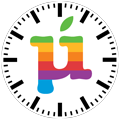Organizing The Biggest Task Of My Life With Notion And An iPad
I’m about to enter my senior year at an American high school.
That means it’s time for one of the most important tasks I’ve had to do in the past few years: college applications.
Since I’m applying to competitive colleges, the process is expected to be extremely stressful. My hope is that building a Notion dashboard to manage my college applications will help reduce some of this stress and improve my organization.
Here’s how I built this dashboard (and how I plan to add more).
The Task
First, let me make the task clear.
I’m applying to 22 colleges across 4 application platforms (CSU, UC, Common App, and MIT’s portal).
I’ll have to manage application deadlines, recommendation letters, activity lists, awards, standardized test scores (if applicable), and essays.
That last part is probably the most important — after accounting for every college, I have 68 prompts to respond to.
Essays
With nearly 70 prompts to respond to, organizing my essays is crucial.
Rather than taking many screenshots, you can look at this drawing to understand how my Notion pages are organized for my essays.
Any page underlined in red is a page where there is either an in-page Notion database or a link to a Notion database for the essays for the respective universities.
Here’s an example of what this database looks like:
In addition to a database, I’ll also add some additional information, like prompts, tips, and choices (if a school asks me to choose an essay to write from multiple prompts).
Here’s an example of what this looks like:
Under Prompts, I list all potential prompts and under Tips, I add links to any relevant articles.
For instance, there are a few reputable articles discussing tips specifically for UC essays. Under Tips, I’ll link these articles and any other sources of information that could help me write my essays.
For schools in the Common Application group, I also add a link to my advice notes (which you’ll read about later in the article). As a quick summary, it’s a collection of college essay notes from a variety of sources.
On each individual essay page, I keep the prompt, additional tips/information, word count, and the essay itself.
If I decide to completely restart an essay, I’ll keep the original version hidden in a toggle.
If an essay involves significant reflection, I’ll also keep that in a toggle for future reference.
Activities
As part of my college application, I’ll also have to finalize my activities list.
For most applicants, this isn’t too hard.
Because of the activities I participate in, however, it’s tough to determine which activities I should submit and which ones I shouldn’t submit.
For some context, all of my activities fall into 3 main groupings: statistics, creativity, and community service.
I’m personally interested in statistics and computer science, so I have to determine how to build my activity list around that.
That means I might have to leave out some activities, and I’ll have to choose which ones to not include.
To do so, I’ve made different versions of potential activity lists I could submit. I put each version under a toggle so that I can easily compare them.
Colleges
Like my essays, it’s crucial for me to organize my college information.
For example, I’d love to know the exact deadlines for colleges, especially any that happen to have deadlines that vary from other universities.
I’m still working on adding this type of information to my college list. Here’s what I have so far:
- If there’s an early application option (like MIT’s Early Action or UPenn’s Early Decision)
- The application portal (CSU, UC, Common App, or MIT’s portal)
- The major I’ll select (Computer Science, Data Science, or Statistics, potentially in combination with a healthcare/biology option)
- How many essays I’ll have to write
Advice
I briefly discussed this earlier in the article.
Given the ultra-competitiveness of college admissions during (and after?) COVID, it’s nice to have any advantage you can.
It’s also nice to be productive.
That’s why I decided to take notes on helpful podcasts, videos, and articles. Rather than listening to a podcast 30 times and still forgetting some information, I felt that it would be more useful to sit down and take notes.
That’s exactly what I’ve done with resources like Inside the Yale Admissions Office podcast (using Split View of course). Taking notes means that I can go back and review key tips.
This is super helpful when writing essays.
While it does take some effort to write notes, it pays off in the long run.
In addition, I can spend less time in the stressful world of college admissions and spend more time hanging out with my friends during my last year of high school.
Recommendation Letters
Thankfully, this part isn’t as complex as the others.
All I did was identify a couple of STEM teachers that could write a letter of recommendation, a couple of humanities teachers that could write a letter of recommendation, and set deadlines for asking these teachers and following up on my request.
Final Thoughts
I genuinely do not know how I would organize everything without Notion.
22 colleges is a lot, and this organization is removing at least a little stress from the process.
Thanks for reading,
Adi
Are You Maximizing Your iPad?
For those of you who want to make use of your expensive investment, you’ll want to check out my newsletter.
As soon as you sign up, you’ll get a list of 17 free apps that make the iPad worth owning.
You’ll also get my posts straight to your inbox (for free).

